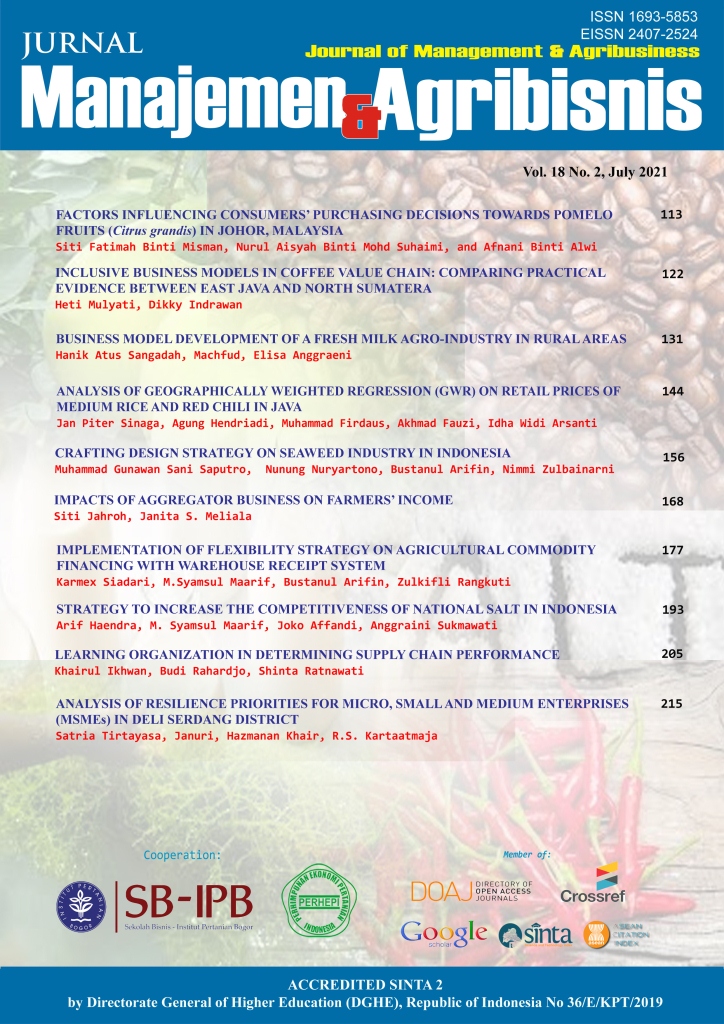Analysis of Resilience Priorities for Micro, Small and Medium Enterprises (MSMEs) in Deli Serdang District
Abstract
The COVID-19 virus pandemic during 2020 has become the material for research & investigation in building a priority model for the resilience of Micro, Small and Medium Enterprises (MSMEs). The purpose of this study is to provide empirical evidence on the resilience of MSMEs in coastal, urban and Plateau agricultural areas in Deli Serdang Regency, North Sumatra Province (PSU). Data collection techniques in this study are secondary data collection (the income and production aspects of one-quarter of MSME during the COVID-19 pandemic which is calculated by averages and regional positions), observation and interviews. The analysis technique used is the Analysis Hierarchy Process. The results show the trend of MSME resilience in the aspects of income and production, researchers who get production value always experience a general decline, so that prioritization in decision making in MSME resilience becomes a solution for decision-makers, product packaging, distribution networks and the need for agricultural and food products are priorities major for the community. Dissemination and guidance on awareness using a marketing model through social media for MSME actors has an impact on changing thinking and income, and the role of all decision-makers in obtaining information as an effective workflow and policy to build sustainable small and medium industries amid the COVID-19 pandemic.
Keywords: agribusiness, analysis hierarchy process, north sumatera, resilience of small and medium enterprise
Authors
Authors who publish with this journal agree to the following terms:
- Authors retain copyright and grant the journal right of first publication with the work simultaneously licensed under a Creative Commons Attribution License that allows others to share the work with an acknowledgement of the work's authorship and initial publication in this journal.
- Authors are able to enter into separate, additional contractual arrangements for the non-exclusive distribution of the journal's published version of the work (e.g., post it to an institutional repository or publish it in a book), with an acknowledgement of its initial publication in this journal.
- Authors are permitted and encouraged to post their work online (e.g., in institutional repositories or on their website) prior to and during the submission process, as it can lead to productive exchanges, as well as earlier and greater citation of published work (See The Effect of Open Access).

